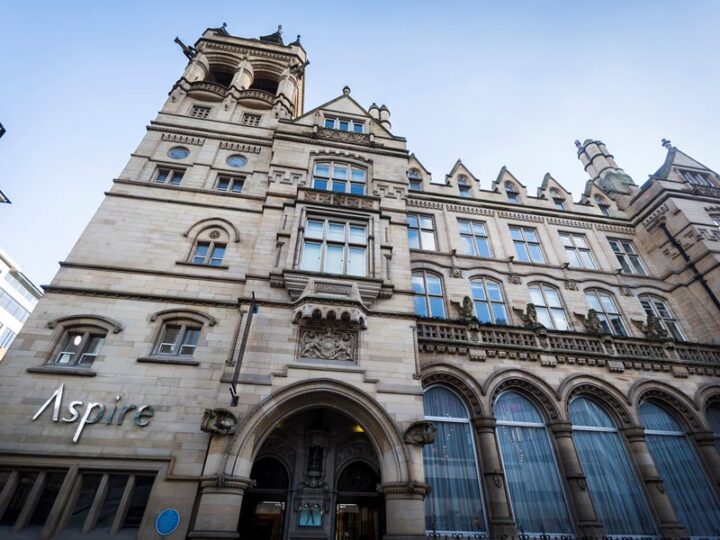We are fortunate as consultants to work with clients from a huge variety of sectors, from restaurants to law firms and construction companies to physiotherapists. As a young business ourselves, we have the benefit of observing and learning from each and every one of our clients, taking inspiration from them every day.
As part of this observation process we often come across common communications barriers that are holding a remarkable business back – by making it look like an average business to the outside world. One of the biggest challenges SMEs in sectors like construction have is the ability to communicate what their highly technical experts do in laymen’s terms. They benefit from being innately unique but don’t have big specialist marketing and business development teams to proactively find and translate what makes them different and special to a non-technical audience. Whether you’re a chef, a lawyer, an engineer or a teacher, if you can’t adapt how you communicate what you do in a way that your audience understands, you’ll never achieve that all important buy-in from those you are pitching to, whether that is via a formal tender or pitch process, an informal coffee or an online interaction.
People buy people and, as an SME, your people are your biggest asset. But time and time again we meet businesses who have impressive technical experts doing remarkable work that remains in the shadows simply because no-one other than them really understands the application and value of it. Particularly when it comes to written content, experts in their field tend to turn on the ‘tech speak’ and lose the personalities that make people want to work with them.
Good old fashioned storytelling
For one of our clients, Harry Fairclough Construction (HFC), having experts on board who can tell the story of what they do has become critical to the success of the business. A very traditional company working within a very traditional sector, the company has been around for over a hundred years. In that time, it has innovated and stayed ahead of the game whilst doing what few of the ‘big players’ in the sector have managed to do. It has maintained a squeaky clean reputation for quality, value and service that goes the extra mile every time.
Surely a well established business like this can simply rely on the reputation it has spent years developing with clients and peers and reap the rewards in tough times? Of course not. In a highly competitive marketplace where everyone has been squeezed as far as is possible on cost just to survive, they need to do something remarkable to stand out. The majority of its new contracts come from Local Authority clients and the competitiveness of these tenders hasn’t changed – but what the client values has. In a marketplace where everyone can boast the technical expertise at the lowest possible cost, it is quality of service and delivery that matters more than ever. Local Authorities have responded to this by changing their decision-making processes. Quality, rather than simply price, now amounts to 70% of most tender submissions and the ability to break down the technical language and demonstrate where you add value is the name of the game.
As a medium-sized regional firm, HFC has been very forward thinking in putting up-skilling its teams on communications at the heart of its business development strategy – and as such has survived a recession during which many competitors have fallen by the wayside.
How do you communicate technical information?
Harry Fairclough’s technical people have to be able to present what the company does, bringing it to life in interviews, presentations and written documents. Not only do technical people have to learn new skills, they have to constantly adapt and refine them. Chief Exec Richard Longfellow explains: “We now tell the story of what we do in a range of different ways. Our on-site teams have always been second-to-none when it comes to project delivery and client service and the way we communicate and engage with the local community in which we are working is paramount. But we don’t just rely on this important face-to-face interaction. We have project managers and engineers blogging about what they are doing to keep interested parties updated on the progress of their work, we give broadcast quality presentation training to our senior management team and we engage experts in engagement to train our team on digital communications and social media to ensure that we are up to speed with the latest communications tools. We’re a traditional sector at heart but relying on our technical people being the best is not enough, we have to be able to tell the story of what they do via the whole range of media available to us.”
Constructing your story
The construction sector has been called many things in recent years including fragile and stunted. It has been blamed for tipping the country back into recession and a major contributor to unemployment rates. Yet there are companies like our client who are not only surviving but setting best practice when it comes to internal and external communications. Are they a huge ‘group’ company with an all singing, all dancing marketing team? No. They are a traditional company with traditional values who see that its people and their expertise are its most important assets. It comes from the very top of the organisation and it is a genuine reflection of an innovative and proactive internal culture.
We believe that there is a real opportunity for smaller regional players in the construction sector to stand head and shoulders above their larger competitors by learning to communicate what they do more effectively – using traditional and ‘new’ media. By up-skilling their expert teams for the long term, they can do it in a low cost, innovative way that doesn’t involve glossy brochures and flashy presentations from specialist salespeople. We would urge them to bring in the experts now when spirits in the sector are low – but so is the cost of external expertise and support!


